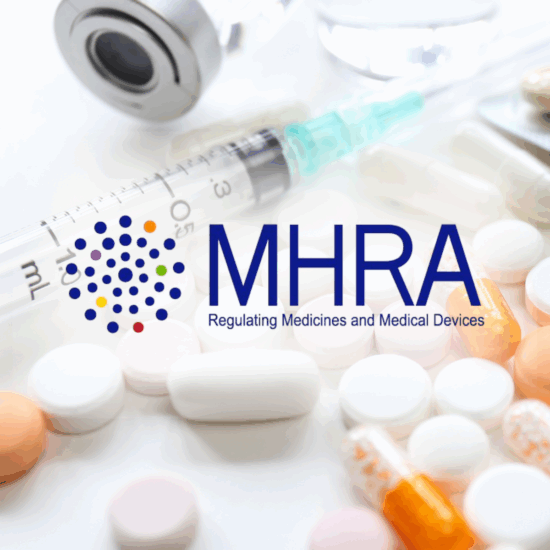New UK Clinical Trials Regulation 2024: What You Need to Know
Published May 29, 2025
Published 01st August 2023

In the fiercely competitive and tightly regulated landscape of the pharmaceutical industry, the journey to achieve successful drug development and regulatory approval demands an intricate and strategic approach.
Regulatory affairs play a paramount role throughout this entire process, encompassing a range of crucial factors such as market access strategies, labelling, reimbursement, Target Product Profile (TPP), and value proposition. As well as defining the clinical development pathway, the nonclinical support required for adequate safety determination and the knowledge of how to ensure the pharmaceutical development is executed in a way to avoid late-stage pitfalls. The profound understanding and effective implementation of these critical elements are fundamental in predicting and ensuring a product’s success at overcoming regulatory hurdles and subsequently achieving optimal performance in the market.
Underestimating the importance of early regulatory involvement can lead to costly setbacks and hinder the progression of drug development. Waiting until the Phase 2/3 stage to address regulatory concerns often results in conflicting views among stakeholders and a significant disconnect between strategic decisions and regulatory requirements.
To circumvent such challenges, a proactive approach is essential, and regulatory planning should be initiated promptly after proof of concept. Engaging experienced regulatory consultants at this early stage enables companies to chart a clear course, make well-informed decisions, and minimise the need for major adjustments further down the development timeline.
Regulatory consultants can bring invaluable expertise to the table, enabling the crafting of meticulously designed clinical trials that effectively capture the data sought by regulatory authorities. The substantial costs associated with clinical programmes necessitate careful resource allocation. Running multiple trials that do not align with the overarching regulatory strategy can deplete a company’s financial reserves and significantly impede the likelihood of successful approval. By embracing a streamlined approach under the guidance of regulatory experts, companies can adopt the “less is more” philosophy, focusing on targeted trials that harmonise with the overarching regulatory pathway.
For early-stage companies the use of consultants can bring the flexibility required to cover the diverse requirements (quality, nonclinical and clinical) at an expert level rather than trying to employ an ‘all-rounder’. It can be highly beneficial to have a flexible workforce to cover the peaks at the time of submissions, and to format and publish the documents in accordance with health authority system requirements.
In today’s dynamic pharmaceutical landscape, ground-breaking scientific discoveries alone are insufficient to guarantee the successful delivery of life-changing medicines to patients in need. The complex web of regulatory requirements plays a pivotal role in steering new drugs towards market success. Even the most promising innovations may falter without a well-defined and compliant regulatory pathway.
Collaborating with adept regulatory consultants bridges the gap between exceptional science and the successful attainment of regulatory approval. With the patent clock ticking, timely submission is essential to maximise product value. Engaging with regulatory experts helps to minimise lost time as they guide the way though requirements and identify the potential opportunities to fast-track assessments.
Keeping pace with the constantly evolving guidelines can be a daunting task, especially for in-house teams, executives, and quality assurance personnel. The size and scope of their responsibilities can often pose challenges in staying up to date with all the changes and developments occurring in the regulatory world.
This is where regulatory consultants play a pivotal role. Their role demands that they keep a vigilant eye on the ever-changing regulatory landscape, actively engaging with regulatory bodies to stay informed about the latest updates and developments. By working hand-in-hand with these bodies on a daily basis, and through team collaborations, regulatory consultants acquire an extensive understanding of the shifting regulatory requirements, ensuring that their clients are always up to date and well prepared to navigate the intricate maze of pharmaceutical regulations.
The strategic significance of regulatory consulting in pharmaceutical development and approval cannot be overstated. As a multifaceted discipline, regulatory consulting addresses vital elements such as market access, labelling, reimbursement, TPP, and value proposition, as well as the development pathway. Early involvement of regulatory experts is paramount to avoid costly pitfalls and ensure seamless alignment between strategic decisions and regulatory demands.
Moreover, precision in trial design, guided by experienced regulatory consultants, optimises resource utilisation, and augments the prospects of obtaining timely regulatory approval. In an industry where adherence to regulatory standards is fundamental, partnering with seasoned regulatory consultants serves as a linchpin for unlocking triumph in the dynamic and ever-evolving pharmaceutical market.
No matter the complexity of your regulatory challenges DLRC Group deliver world-renowned regulatory affairs solutions. To experience the efficiency and effectiveness of working with DLRC, contact our experts using the links below and find out how DLRC can support your business.

Published May 29, 2025

Published May 29, 2025

Published May 01, 2025

Published Apr 28, 2025

Published Apr 25, 2025

Published Apr 11, 2025

Published Mar 31, 2025

Published Mar 27, 2025

Published Mar 27, 2025